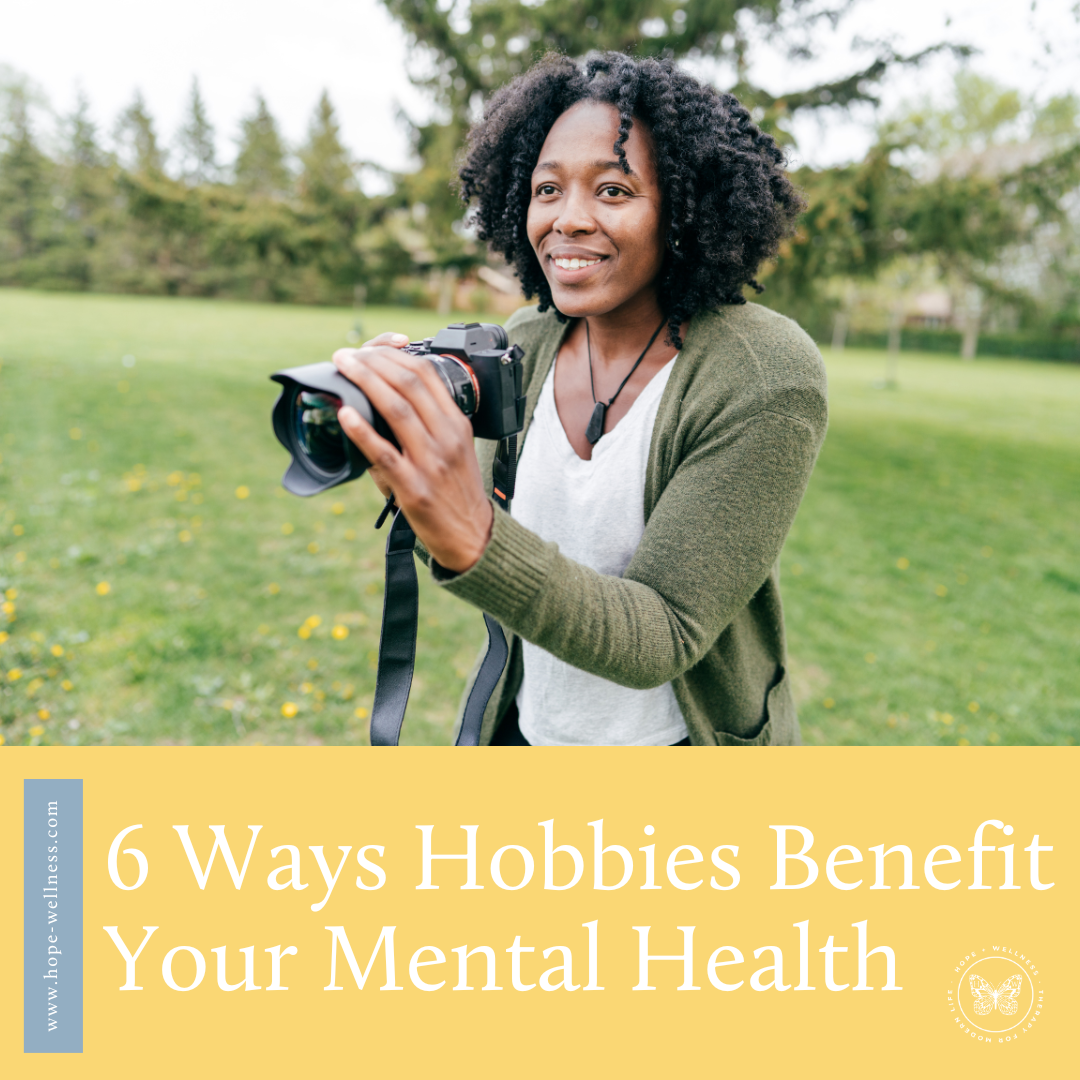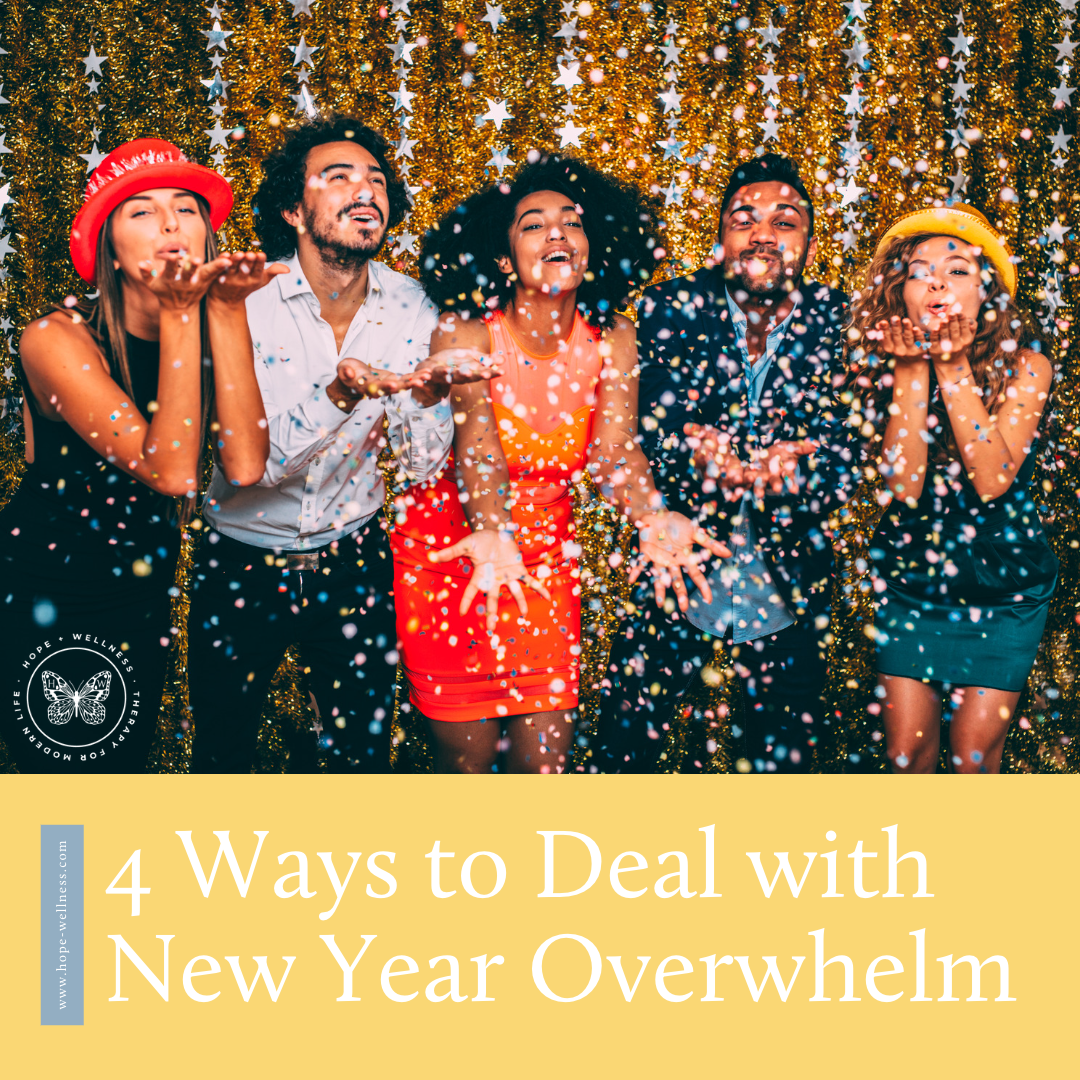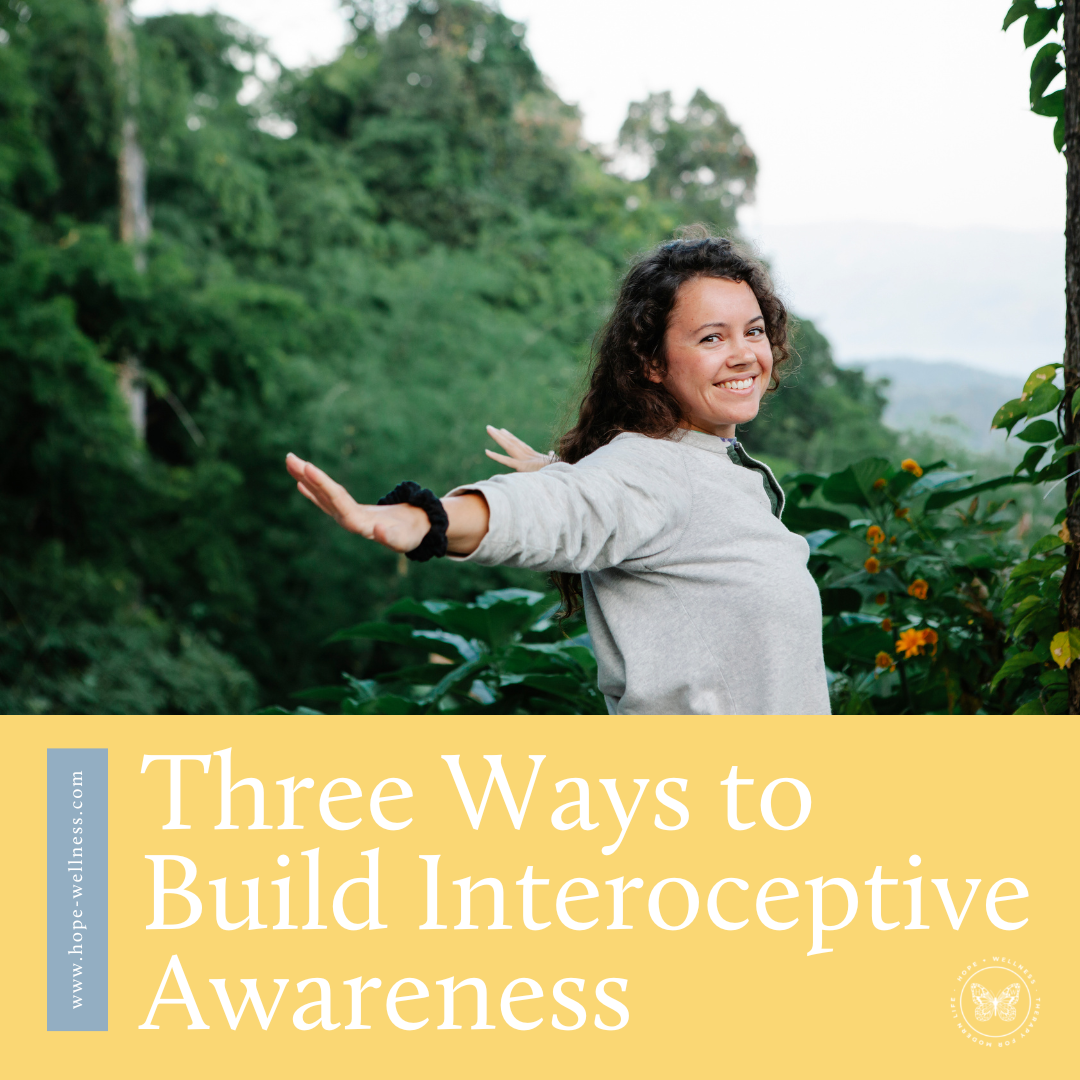
Hope +Wellness Blog
little snippets of advice for everyday challenges many people share

6 Ways Hobbies Benefit Your Mental Health
The reason that hobbies are so popular is because they give you a chance to unwind and recharge mentally. Lots of hobbies are physically taxing, but they allow us time to get in the zone of doing something we like and get over the stress of our day. And hobbies aren’t just for fun, they’re good for you, too! Here are 6 ways hobbies benefit your mental health.

Healing through Relationships: Why the Therapeutic Relationship Matters
Therapy is so much more than the tools you learn. Therapy is comprehensive mental health care, where the relationship between therapist and client is a crucial component to the treatment and healing process.

Tending to Plants for Better Mental Health
Have you ever considered the benefit of taking care of something else as part of your own self care process?
It may sound counterintuitive, but it’s true: creating routines where you tend to something else (a pet, a garden, a community project) benefits not just what you’re tending to, but your own mental wellness. Today we’re going to look at tending to plants specifically, but many of the benefits can come from making space to tend to other things (pets, community spaces, etc.) as well.

What Does it Mean to Take Care of Yourself? 7 Blogs to Help You Practice
Self care requires a lot of skills we aren’t necessarily taught, and it asks us to patient and compassionate with ourselves and others as we develop those skills. Some of them are easier than others; it’s easier to get yourself to stretch or go for a walk when you feel your body to start to ache than it is to figure out how to express an unpleasant emotion to someone you care about. To help you practice, we’ve gathered 7 of our favorite posts that cover skills you may not even realize are self care practices.

4 Ways to Deal with New Year Overwhelm
Are you looking for ways to be less overwhelmed in the new year? Here are 4 ways to deal with New Year overwhelm.

3 Tips for Cultivating A More Positive Relationship With Yourself
The word relationship calls to mind our connections with others–with romantic partners, with friends, family members, coworkers, neighbors, etc. But you have a relationship with yourself as well–and it’s the longest relationship you’re ever going to have! That alone makes it worth it to spend intentional time reflecting on your relationship habits and where you want your relationship with yourself to go.

4 Practical Ways to Build New Habits
It can be surprisingly difficult to start doing something new regularly. Doing one small new thing a day (or not doing something) might sound simple, but our brains are complicated, so it doesn’t always end up being that way.
Thankfully, we know a lot more about the human brain than we used to, which can help us make sense of how habits are built in our nervous system. It’s absolutely possible to build new habits that improve your life, it just takes some patience.

Spending Time with Your Inner Child this Autumn
As the weather cools, it’s finally starting to feel like autumn! There are many ways you can connect to your inner child throughout the year, but why not have a little seasonal fun with it? Here are just a few ideas on how you can use the changing of the seasons as an opportunity to connect with your inner child.

3 Ways to Build Interoceptive Awareness
It takes practice to learn how to engage the sense of interoception. Interoceptive awareness builds with time, so the more you can be curious about what’s going on in your body, the better. Here are 3 other ways to strengthen your sense of interoception.
Hope+Wellness is a mental health practice specializing in the treatment of depression, mood, stress, and anxiety in kids, teens, and adults. This is a blog about living well and finding meaning and purpose in the face of difficult challenges. This is a blog about finding hope.
Archive
- ACT
- ADHD
- Acceptance
- Anxiety
- Authenticity
- Belonging
- Bipolar
- CBT
- Calming
- Change
- Chronic Illness
- Chronic Pain
- Communication
- Community
- Coping Skills
- DBT
- Dating
- Depression
- EMDR
- Emotions
- Entrepreneurs
- Friendship
- Gratitude
- Grief
- Health Psychology
- Hope
- Inspiration
- Intimacy
- Intuition
- Joy
- Letting Go
- Love
- Manic Depression
- Mindfulness
- Miscarriage
- OCD
- Parenting
- Personal Growth
- Positive Vibes
- Quotes
- Relationships
- Resources
- Self-Compassion
- Self-Reflection
- Services
- Sleep
- Spirituality
- Stress Management
- Stress Relief
- Suffering
